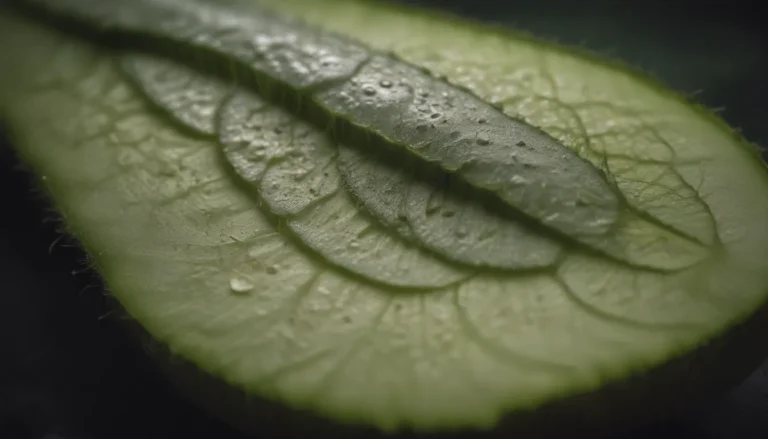A Comprehensive Guide on How to Eliminate Bermuda Grass

If you’ve ever dealt with Bermuda grass, you know how challenging it can be to eradicate this resilient warm-season grass. While Bermuda grass has its advantages, such as heat and drought tolerance, its rapid spread through rhizomes, stolons, and seeds can quickly turn it into a problematic weed in your lawn or garden. In this in-depth guide, we will explore five effective methods to kill Bermuda grass, both organically and non-organically. Whether you’re looking to replace Bermuda grass with another variety or prevent its invasion altogether, we’ve got you covered with valuable tips and techniques.
Understanding Bermuda Grass
Before diving into the various methods of eliminating Bermuda grass, it’s essential to understand the characteristics of this grass species. Scientifically known as Cynodon dactylon, Bermuda grass is known for its vigorous growth and resilience in challenging conditions. However, its aggressive spreading habits can make it a nuisance for homeowners looking to maintain a pristine lawn or garden.
Pros and Cons of Bermuda Grass
- Pros: Heat and drought tolerance, heavy foot traffic resistance
- Cons: Invasive nature, difficult to eradicate once established
1. Spraying Bermuda Grass With an Herbicide
One common method of killing Bermuda grass is through the use of herbicides. While this approach may seem straightforward, there are essential steps to follow to ensure successful eradication.
Steps to Spray Bermuda Grass With Herbicide:
- Choose a herbicide containing glyphosate (e.g., Roundup) for effective results.
- Water the lawn thoroughly a week before spraying to ensure the grass is actively growing.
- Apply the herbicide evenly on a calm, wind-free day to avoid drift.
- Wait for the Bermuda grass to turn brown and die before removing the dead sod.
- Irrigate the lawn again to stimulate new growth from any surviving rhizomes.
2. Digging Out Bermuda Grass
If you prefer a non-chemical approach to removing Bermuda grass, manually digging it out is another effective method. This method is suitable for areas where using herbicides is not an option due to the presence of desirable grass species.
Steps to Dig Out Bermuda Grass:
- Mow the lawn to a shorter length for better visibility.
- Use a trowel to dig out Bermuda grass, ensuring you remove it entirely, including the roots.
- Dispose of the extracted grass in a leaf bag to prevent regrowth.
- Re-seed the bare spots with the desired grass species for a uniform lawn.
Tips:
- Ensure all parts of the Bermuda grass plant, including rhizomes, are removed to prevent regrowth.
- Plan on repeated digging sessions as it may be challenging to remove all traces of Bermuda grass in one attempt.
3. Smothering Bermuda Grass With Newspaper
For those looking for an organic approach to killing Bermuda grass, smothering it with newspaper can be an effective method. This technique deprives the grass of light and nutrients, leading to its eventual demise.
Steps to Smother Bermuda Grass With Newspaper:
- Mow the lawn to a shorter length to facilitate newspaper placement.
- Lay down a thick layer of newspapers (about 10 sheets) over the Bermuda grass.
- Ensure the rows of newspaper overlap to prevent grass regrowth.
- Cover the newspaper with a thick layer of mulch to enhance the smothering effect.
- Prepare the soil for reseeding once the Bermuda grass has died off.
4. Using Soil Solarization on Bermuda Grass
Soil solarization is a natural method that utilizes the sun’s heat to eliminate Bermuda grass and its seeds. This technique is effective, especially during the summer months when temperatures are high.
Steps to Soil Solarization:
- Mow and water the lawn before covering it with a clear plastic sheet.
- Secure the plastic sheet with weights or stakes to prevent it from moving.
- Keep the plastic tightly stretched over the lawn for a duration of about two months.
- The heat trapped under the plastic will kill the Bermuda grass and its seeds, preparing the soil for reseeding.
5. Dealing With Bermuda Grass in Flower Beds
If Bermuda grass has invaded your flower beds, it’s crucial to address the issue promptly to prevent further spread. Whether you opt for manual removal or selective herbicide application, taking action early can help preserve the aesthetics of your garden.
Methods for Dealing With Bermuda Grass in Flower Beds:
- Manual Removal: Dig out Bermuda grass by hand, ensuring all rhizomes are extracted.
- Non-Selective Herbicide: Carefully apply a non-selective herbicide to target Bermuda grass while protecting your flowers.
- Selective Herbicide: Use a selective herbicide designed to kill grass without harming other plants in the bed.
- Prevention: Mulch your flower beds to prevent Bermuda grass seed germination and establish clear edging to inhibit rhizome intrusion.
Preventing Bermuda Grass Infestation
As the saying goes, prevention is better than cure when it comes to managing Bermuda grass. By implementing proactive measures, you can safeguard your lawn and garden against invasive grass species.
Preventative Measures:
- Edging: Install deep edging to deter rhizomes and stolons from infiltrating your garden beds.
- Mulching: Use mulch to suppress Bermuda grass seed growth and establish a barrier against weed invasion.
- Proper Lawn Care: Maintain a healthy lawn by mowing at the correct height and providing adequate irrigation to promote the growth of desired grass species.
In conclusion, while Bermuda grass can be a formidable opponent, with the right strategies and consistent efforts, you can effectively control and eradicate it from your landscape. Whether you choose chemical herbicides or eco-friendly methods, the key is to stay vigilant and address Bermuda grass infestations promptly to prevent further spread. By incorporating these techniques into your lawn and garden maintenance routine, you can enjoy a lush, weed-free landscape all year round.





